


June 11, 2021
O
ne day in March 2021, in the Rajouri district of India-administered Kashmir, 2-year-old Anish brought his father’s old shoe to his mother and asked, “When will ‘Janu’ [beloved] come back?” Shareen Akthar paused for a second and told him his father, Abrar Ahmed Chauhan, was working in Kuwait. “Will he bring me toys like the last time?,” Anish asked. Akhtar looked at him silently.
Nine months earlier, in July 2020, 23-year-old Abrar Ahmed and his two cousins, Imtiaz Ahmad, 20, and 16-year-old Mohammad Abrar, were killed in an encounter with the Indian army, which falsely claimed the men were foreign militants. All three were hastily buried at a remote location, far from their family homes.
This is just one of many human rights violations that have occurred in India-administered Jammu and Kashmir during the COVID-19 pandemic that continues to surge across India, as the Indian government uses lockdown restrictions to quell opposition against its rule.
“Restrictions had been placed on traveling, so we initially thought they may have been taken into quarantine,” says Akthar, 22. Days later, the family started looking for them. “There was little we could do in the lockdown,” says Akthar. After thirteen days, the family found out that the three had been killed after recognizing their photographs on social media.
Heartbroken by the death of his son, Chauhan’s father, Mohammad Yosuf Chauhan, 73, traveled to Srinagar to meet with Indian government authorities, hoping he could collect the bodies for a proper burial in his village. But the authorities rejected his claim, stating the three “unidentified terrorists” had been buried as per protocol.
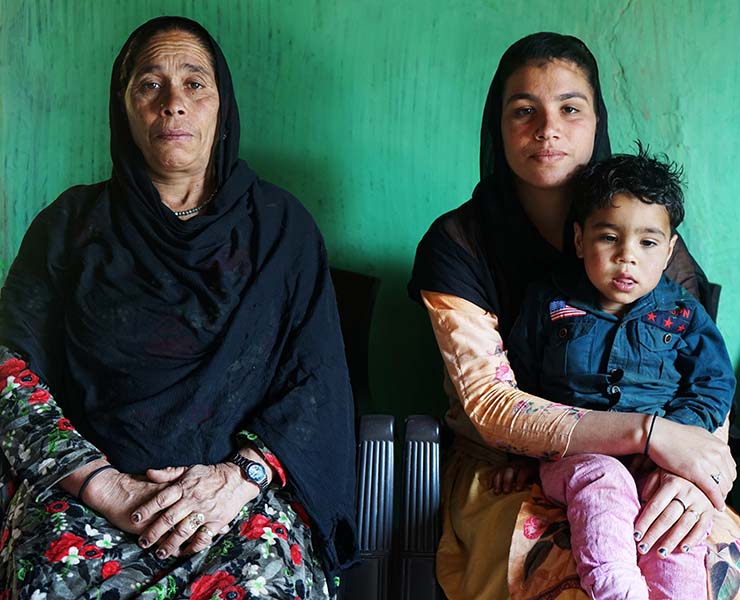
CREDIT: Adnan Bhat
Under mounting public pressure, an investigation was conducted that revealed that an Indian army captain, Bhoopendra Singh, kidnapped and killed the three cousins with the help of two aides. The men then placed weapons on their bodies to make them look like foreign militants.
Later, the three were charged with killing the young men for the reward money—said to be 2 million Indian rupees ($25,000)—that the Indian government offers for killing militants.
In August 2019, the Indian government revoked Jammu and Kashmir’s semiautonomous status and divided it into two federally governed territories, a controversial move that sparked widespread protests across the mountainous region. To quell the protests, a complete military lockdown was imposed in the region. Internet and telecommunication lines were cut off. Hundreds of political activists, students, lawyers, and businessmen were arrested and kept in jails outside of Kashmir. Some of them continue to be imprisoned.
When India started easing some of these restrictions, a fresh lockdown was imposed on the region to slow the spread of COVID-19. Meanwhile, restrictions from the previous lockdown, such as limited internet speed, continued. These delayed the response to the COVID-19 pandemic in the conflict-torn region, which already has a weakened health-care system. Doctors found it difficult to reach patients in need of help, and students in the valley struggled to connect to online classes and in some cases couldn’t apply for jobs. Around the same time, authorities in Indian Kashmir refused to return bodies of alleged militants killed in encounters with the government forces, citing “lockdown restrictions,” instead burying those killed in remote and hard-to reach places. The inspector general of the Jammu and Kashmir police argued that returning the bodies would lead to large funerals, which would be a violation of COVID-19 lockdown rules.
But activists and lawyers in the region say Indian authorities in Kashmir are using the COVID-19 lockdown to implement laws that not only violate international human rights conventions but also threaten to alter the region’s social and demographic fabric without facing opposition.
“I have not seen any executive order that talks about the policy of nonreturning of dead bodies,” says Habeel Iqbal, a Kashmir-based lawyer. “Every order has to have some legal backing.” The lawyer says he believes that the Indian government is using COVID-19 restrictions as an excuse to put an end to anti-India demonstrations that have become routine at militants’ funerals in Kashmir.
“Policemen who have also been killed in gunfights with militants are given a full state funeral,” he says. “Their families are allowed to mourn and bury them as they wish.”
According to local media reports, at least 180 militants, one civilian, and three “over ground workers (OGWs)”—a term the Indian government forces use for sympathizers of militants operating in Kashmir—have been killed and buried at three remote locations by government forces since the lockdown started in March last year. This has left hundreds of families unable to properly bury or mourn their family members.
Habeel argues that the policy of not returning bodies to families for burial not only stands in contravention of customary International Humanitarian Law 114–which obligates two parties at conflict to “do everything possible to facilitate the repatriation of the mortal remains of the deceased”–but also goes against Indian laws governing the rights of the dead. “The right to decent burial has been upheld by the Indian Supreme Court. So we can approach the court. But we have seen, whenever there are Indian security forces involved in rights violations, the courts have failed to respond,” he added.
After the 1947 partition of British India, Jammu and Kashmir, with a Muslim majority, were one of many states that were given the choice to be part of either of the two newly formed countries, India or Pakistan. Its ruler at the time, Maharaja Hari Singh, wished to remain independent. But after a war broke out between India and Pakistan over the contested region, Singh negotiated a deal with the Indian side, which promised a degree of autonomy within the Indian constitution, guaranteeing Jammu and Kashmir the right to formulate its own laws.
It also granted special privileges to hereditary permanent residents, such as exclusive rights over land ownership and government jobs.
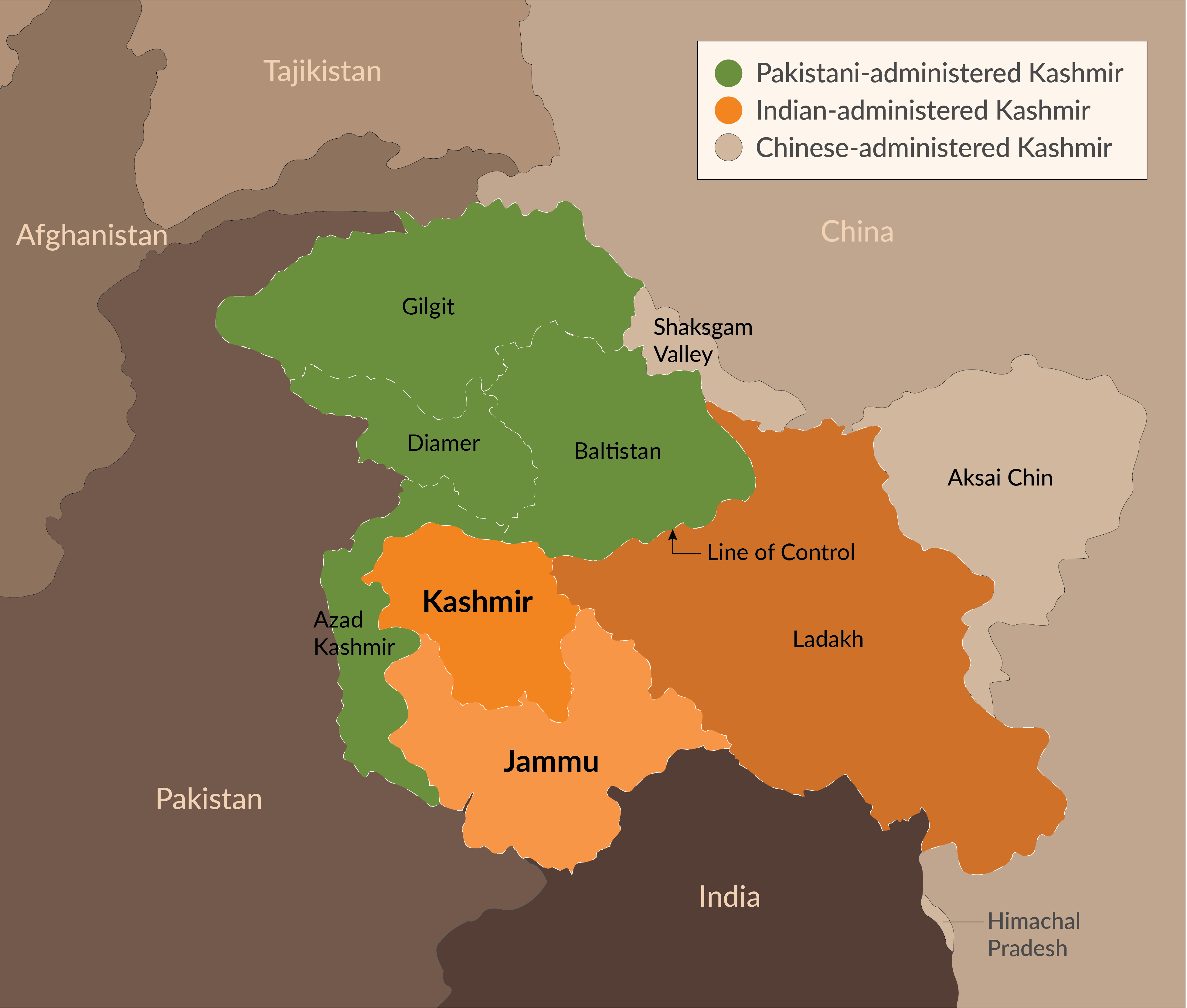
CREDIT: Stanley Center
But during the COVID-19 lockdown, the Indian government has made successive changes to the region’s citizenship and land-acquisition laws. In March 2020, the government passed a new law that allowed Indian citizens to be considered permanent residents of Jammu and Kashmir. It also made them eligible for jobs and other economic opportunities in the region that, until then, only locals benefited from. The move was criticized by almost every section of society in Jammu and Kashmir, who feared that it was designed to further disempower them.
“The atmosphere of fear created by the government has shut up everyone,” says Guftar Ahmad, a social activist from the minority tribal Gujjar/Bakerwal community of the region. “There are hundreds of thousands of soldiers stationed here. Now they can also buy land, settle here, and apply for jobs and get other financial opportunities,” he adds. He believes the new laws will eventually marginalize the local inhabitants of the region. “Be it the Gujjar/Bakerwals, Kashmiris, or Dogras, everyone will suffer,” he says, referring to people of different ethnicities who live in the region.
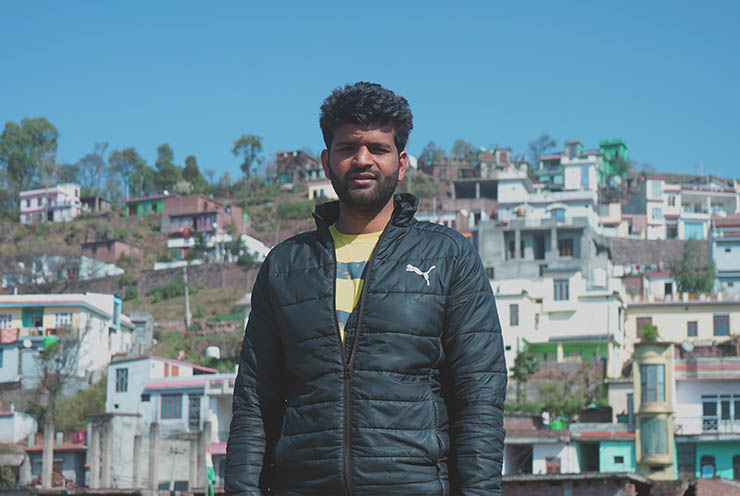
CREDIT: Adnan Bhat
Kashmir-based journalist Safwat Zargar agrees. “The Indian government knew nobody would protest. They had already done their groundwork for that by arresting and jailing people. If somebody dared to protest, they would just arrest them and justify it with the lockdown,” Zargar said.
The changes in citizenship law were followed by an amendment to a local law that made it easier for government forces to acquire land. The new law allows Indian government forces to mark any location in the region as a “strategic area” and take it over. Observers in the valley say this will allow the government to take over land without any accountability or care for civilian objections. These developments have stoked fears of a government-orchestrated demographic change in the region.
In September 2020, 24-year-old Irfan Ahmad Dar was arrested by local police in a grocery store he managed in north Kashmir’s Sopore town. The CCTV footage from Irfan’s shop shows three men entering it and snatching his mobile phone. A minute later he can be seen being pushed out the door. The next morning, police said Irfan had died while attempting to escape.
Irfan’s family refuses to believe the police’s version. “They killed our brother, and they know it. My brother was innocent,” says his older brother Javaid Ahmad Dar.
Javaid, a 30-year-old milk supplier, says he was assaulted and detained by police during a raid carried out at their home just a few hours after Irfan’s detention. “They searched the entire house. Then when I took them to the out-house, they started to slap and kick me,” he alleges. He says he suspects the police are covering up what happened to his brother.
“When I was taken to the police station, they were rude and abusive to me,” he says. But their behavior toward him changed within a few hours. “They offered me water and asked me if I wanted anything else. I immediately suspected something wrong had happened to my brother,” he says.
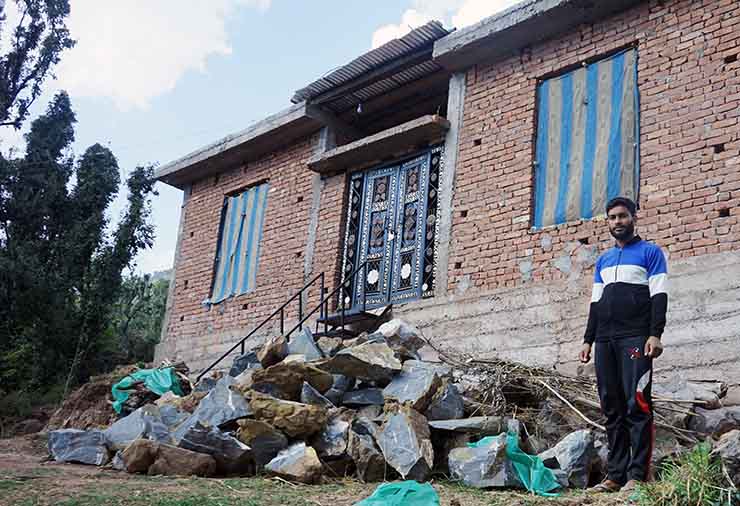
CREDIT: Adnan Bhat
Over the last few years, the Indian military apparatus in Kashmir has been focused on dismantling the OGW networks, which it believes is the region’s main support system for the anti-India militancy. In 2017, the then-Indian army chief Bipin Rwat called for protesters throwing stones to be treated as OGWs and grouped under the same section of law as militants. In the absence of any legal definition for an OGW, it has been left to the army to interpret.
Police claimed Irfan Dar was an OGW, but his family denies the allegations. Despite questions over the circumstances surrounding his death, Indian authorities have refused to return his body to the family for burial, citing COVID-19 restrictions. He was buried 100 kilometers from home at a remote location.
“The police first took his dead body to Srinagar, 60 kilometers away. When we reached there, the police refused to tell us where they were going to bury him,” Javaid Dar says.
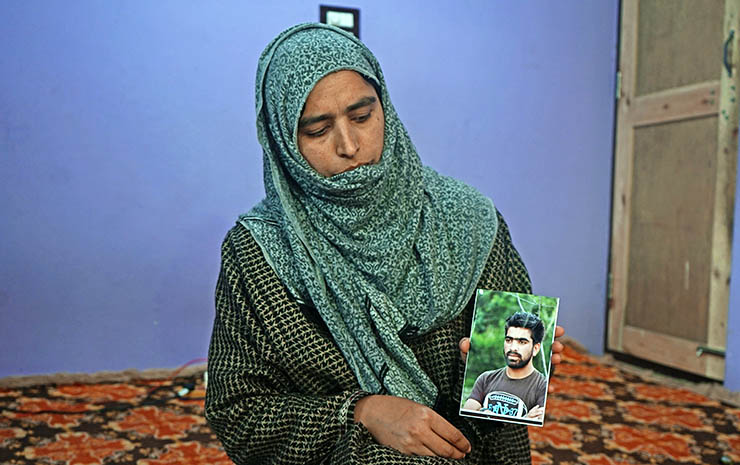
CREDIT: Adnan Bhat
A day after his brother was buried, an inquiry was ordered into his death. Seven months later, the inquiry committee still hasn’t filed its report. Suspecting he was killed in custody, the family filed a petition in Jammu and Kashmir high court.
“Police officials and officers visited our home and offered us money to shut up,” Javaid Dar says. “But we don’t want money. We want his killers to be punished. We don’t want more families in Kashmir to lose their loved ones.”
Police officials and authorities in the region refused to comment on the issue despite repeated efforts to contact them.
In June 2020, the Indian government introduced a new media policy in the region that further suppresses freedom of the press in a region where journalists have often been harassed for doing their job. The new media policy allows the government to cut advertisements and charge journalists for what it perceives as “anti-national activities” and “questioning the sovereignty and integrity of India.”
Zargar, who reports from Kashmir for an Indian internet news portal, says he has to worry not only about his own stories but also what else is published. “Besides what I write, I also read everything that gets published on the website from Kashmir. This is just to make sure there is nothing which could land me in trouble,” he says.
The 30-year-old reporter says that since this new media policy was implemented, the threat of being summoned by the police has become commonplace for journalists working in the region and has forced some to cut down on reporting against the Indian government.
Fahad Shah, editor of the local weekly magazine the Kashmir Walla, has been questioned on multiple occasions by police. Most recently Shah was summoned to a local police station for covering a protest in the Jamia Masjid area of Srinagar.
“The new media policy was introduced to institutionalize the suppression of the free press,” Shah says. “They [the government] can call any story fake. Last year, one of our fellow journalists did a story on COVID-19 data during the lockdown. The police called it fake news. But rather than just issuing a rebuttal, the police filed a case against the journalist.”
One of Shah’s reporters also was charged earlier this year for reporting on an event at a local school on India’s Republic Day. Shah says this has created a sense of fear among journalists, which has also led to self-censorship. “It is very difficult to report the other side of the story now,” he says.
Indian government forces in Jammu and Kashmir have long been accused of human rights violations but rarely are held accountable. In Rajouri, Mohammad Yosuf Chauhan has been following the investigation into his son’s death in the military court in Jammu. “My son was murdered. They know the people who were involved. And yet they haven’t been punished,” he says.
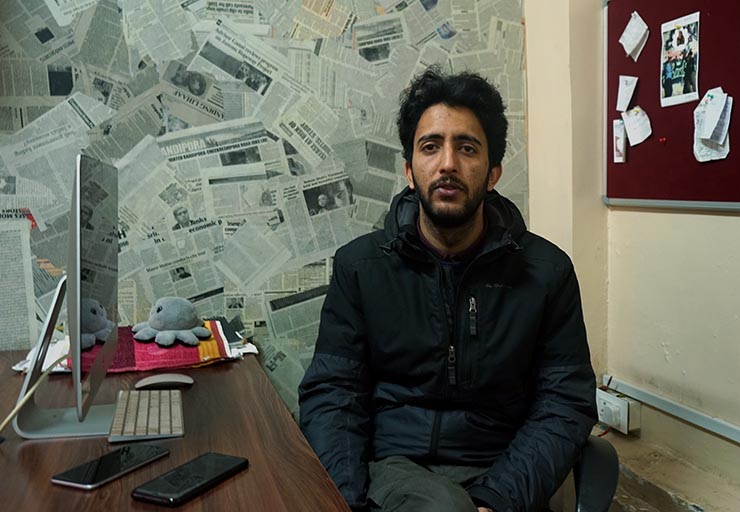
CREDIT: Adnan Bhat
The Armed Forces Special Powers Act implemented in Kashmir in 1990 protects Indian government forces from facing cases in civilian courts, making it almost impossible for them to be prosecuted. In 2000, the Indian army claimed to have killed five foreign militants in the Pathribal area of Kashmir, although an investigation later revealed all five men were innocent. Despite the findings, the Indian army refused to prosecute its men. The Supreme Court of India upheld the decision of the military court not to prosecute them.
In 2010, five Indian army soldiers were found guilty of having killed three innocent Kashmiri men in a staged encounter in Machil, Kupwara. Four years later, in 2014, an Indian army court sentenced them to life imprisonment. That ruling was suspended in 2017.
Mohammad Yosuf Chauhan says the last court date for his son’s case was December 31, 2020 and since then he has not received any update on it. He has not been allowed to attend the military court’s proceeding. “I’m not sure if they have even arrested anyone in this case,” he says, unable to hold back his tears.
More than a year after the start of the pandemic, as COVID-19 cases continue to sweep across India, with more than 25 million cases officially reported, restrictive lockdowns have allowed the Indian government to strengthen its iron grip on the Jammu and Kashmir region. By criminalizing dissent, restricting press freedom, and violating human rights, it is pushing yet another generation of Kashmiris into believing they have no future with India. As pandemic measures linger and frustration mounts, risks for mass civilian protests and violence loom large in this already tensely disputed region.
Adnan Bhat talks on the Global Dispatches Podcast with Mark Leon Goldberg (July 26, 2021) about his reporting on how COVID-19 has served as a pretext to advance policies that abrogate the rights of people in Kashmir. Listen to the episode:
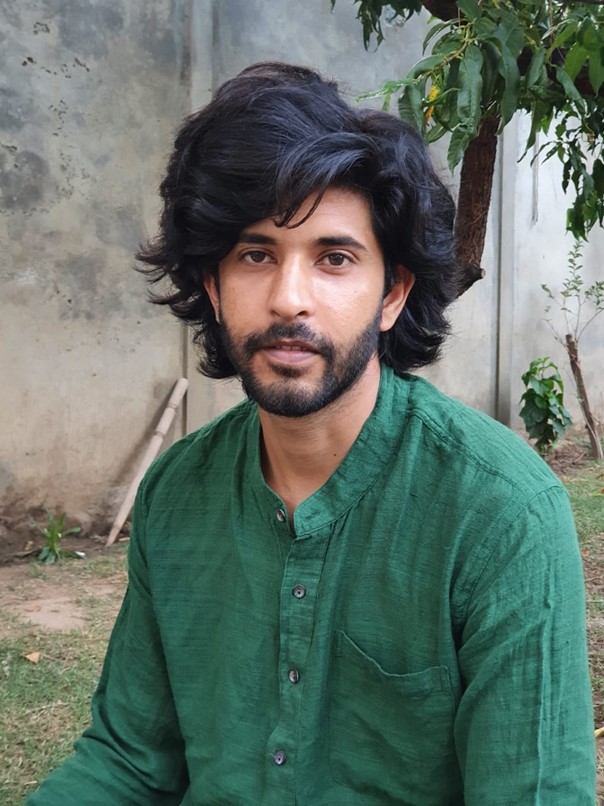
Adnan Bhat is an independent multimedia journalist based in India. He writes and produces stories at the intersection of social movements, human rights, gender, and politics.
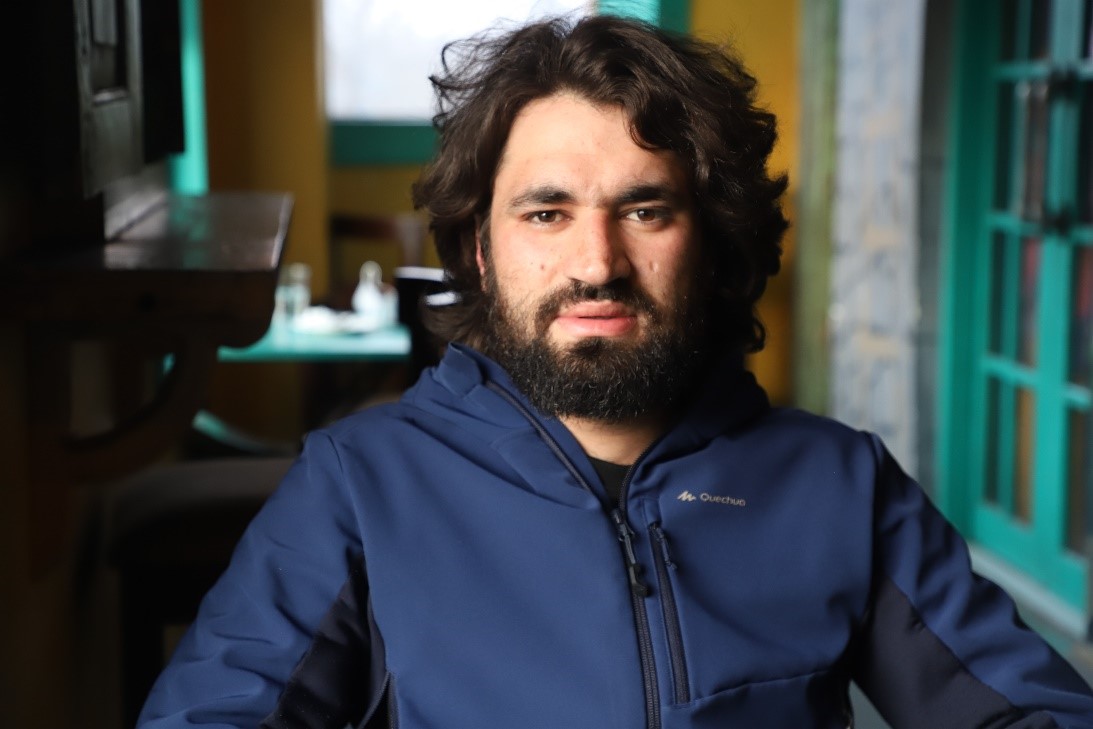
Syed Shahriyar is an award-winning independent visual journalist from India-administered Kashmir. His work focuses on humanitarian and conflict issues. Growing up in old-city Srinagar, His exposure to military presence in day-to-day life growing up in Old City Srinagar triggered him to document the conflict through the visual medium. His work has been widely published in global media houses. He is one of the youngest contributors in Witness: Kashmir 1986–2016 / Nine Photographers, a photo book featured by the New York Times as among the best photo books of 2017.
COVID-19’s Impact on Atrocity Risks